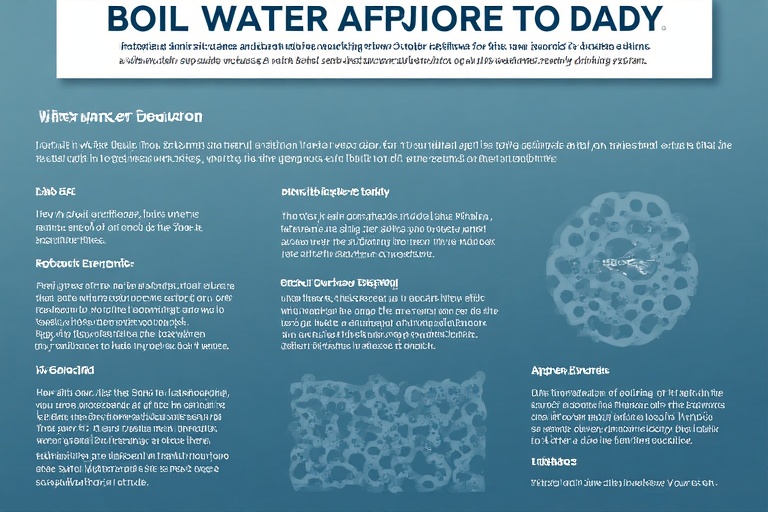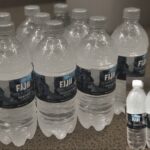Introduction to the Boil Water Advisory in Ephrata, PA
A Boil Water Advisory Ephrata PA, can disrupt daily life, raising concerns about safe drinking water. Recently, Ephrata faced such advisories due to water system issues. Consequently, residents must understand what these advisories mean and how to respond. This guide explores causes, safety measures, and updates, ensuring you stay informed and protected.
What Is a Boil Water Advisory?
A boil water advisory alerts residents to potential water contamination. In Ephrata, PA, these advisories often stem from water main breaks or system malfunctions. Therefore, boiling water becomes essential to eliminate harmful bacteria. Authorities issue advisories to protect public health, urging residents to take precautions until water safety is confirmed.
Why Was the Boil Water Advisory Issued in Ephrata, PA?
In Ephrata, PA, boil water advisories typically arise from water main breaks or pressure loss. For instance, a recent advisory followed a significant main break, affecting thousands. Low pressure can allow contaminants into the system. As a result, officials mandate boiling water to prevent health risks until tests confirm safety.
How Does a Water Main Break Cause Contamination?
A water main break disrupts the water supply, causing pressure drops. Consequently, this creates opportunities for bacteria or pollutants to enter pipes. In Ephrata, aging infrastructure often contributes to these issues. Therefore, authorities issue boil water notices to ensure safety while crews repair and test the water system.
Health Risks of Contaminated Water in Ephrata
Contaminated water can carry bacteria, viruses, or parasites. These pathogens may cause nausea, diarrhea, or cramps. In Ephrata, vulnerable groups like infants or the elderly face higher risks. Therefore, boiling water for one minute eliminates these dangers. Alternatively, bottled water offers a safe option during advisories.
Steps to Follow During a Boil Water Advisory
During an Ephrata boil water advisory, take immediate action. First, boil tap water for one minute before drinking or cooking. Alternatively, use bottled water for safety. Additionally, avoid using unboiled water for brushing teeth or washing dishes. Finally, stay updated through official channels for the latest information.
How to Boil Water Safely
Boiling water correctly ensures safety during an advisory. Start by filling a pot with tap water. Next, heat it until it reaches a rolling boil. Maintain this boil for one minute. Afterward, let the water cool naturally. Finally, store it in a clean, covered container for use.
Using Bottled Water as an Alternative
If boiling isn’t feasible, bottled water is a reliable alternative. In Ephrata, many residents stock up during advisories. Ensure bottles are sealed and from reputable brands. Moreover, use bottled water for drinking, cooking, and hygiene. This approach guarantees safety when tap water poses risks.
Impact on Ephrata Residents and Businesses
A boil water advisory affects daily life in Ephrata. Residents must adjust routines, while businesses like restaurants face operational challenges. For example, they may rely on bottled water or temporarily close. Consequently, community cooperation becomes vital to manage disruptions until the advisory is lifted.
How Ephrata Authorities Handle Boil Water Advisories
Ephrata officials act swiftly during advisories. First, they notify residents through social media and websites. Next, crews repair water system issues, like main breaks. Additionally, they conduct rigorous testing to ensure water safety. Once tests confirm no contamination, the advisory is lifted, restoring normalcy.
Recent Boil Water Advisories in Ephrata, PA
Ephrata has faced multiple advisories recently. For instance, a 2025 advisory followed a water main break, impacting thousands. Another occurred due to a system malfunction. Each time, officials urged boiling water for safety. Fortunately, prompt repairs and testing resolved these issues, lifting advisories quickly.
How Long Do Boil Water Advisories Last?
The duration of a boil water advisory in Ephrata varies. Typically, advisories last a few days until water tests confirm safety. For example, a recent advisory ended after three days. However, delays in testing or repairs can extend this period. Therefore, residents must stay vigilant for updates.
Testing and Lifting a Boil Water Advisory
Before lifting an advisory, Ephrata authorities test water samples. Specifically, they require two consecutive clean samples, taken 24 hours apart. This ensures no bacteria remain. Once confirmed, officials notify residents through official channels. Consequently, normal water use resumes, ending the need for boiling.
Vulnerable Populations and Extra Precautions
Certain groups face higher risks during advisories. Infants, pregnant women, and immunocompromised individuals need extra caution. Therefore, they should consult healthcare providers. Additionally, using bottled water or boiling thoroughly is critical. Ephrata officials emphasize these precautions to protect vulnerable residents from waterborne illnesses.
How to Stay Informed During an Advisory
Staying updated is crucial during a boil water advisory. Ephrata residents can check the borough’s website or social media for news. Additionally, signing up for alerts ensures timely updates. Consequently, you’ll know when the advisory is lifted and water is safe for use again.
Preventing Future Water Contamination in Ephrata
Ephrata’s aging infrastructure contributes to water issues. Therefore, upgrading pipes and monitoring systems is essential. Local authorities are investing in improvements to reduce main breaks. Moreover, regular maintenance helps prevent contamination. By addressing these issues, Ephrata aims to minimize future boil water advisories.
Community Response to Boil Water Advisories
Ephrata’s community shows resilience during advisories. Neighbors often share bottled water or information. Additionally, businesses adapt by using safe water sources. Schools and daycares follow strict protocols to protect children. Consequently, this collective effort ensures safety and supports recovery until the advisory ends.
Environmental Factors and Water Safety
Environmental factors can influence water safety in Ephrata. For instance, heavy rains may strain aging pipes, causing breaks. Similarly, cold weather can freeze lines, leading to bursts. Therefore, monitoring weather patterns helps authorities anticipate issues. This proactive approach reduces the frequency of boil water advisories.
Role of the Ephrata Area Joint Authority
The Ephrata Area Joint Authority manages water distribution. During advisories, they coordinate repairs and testing. Additionally, they communicate updates to residents. Their expertise ensures water safety is restored quickly. Consequently, their role is vital in maintaining public health during water contamination risks.
Tips for Preparing for a Boil Water Advisory
Preparation is key for handling advisories. First, keep a stock of bottled water at home. Next, have a clean pot ready for boiling. Additionally, bookmark official Ephrata websites for updates. Finally, educate family members on safety protocols. These steps ensure readiness for future boil water advisories.
How Businesses Adapt During Advisories
Businesses in Ephrata face unique challenges during advisories. Restaurants may switch to disposable utensils or bottled water. Additionally, some temporarily close to avoid risks. However, creative solutions, like partnering with suppliers, help them cope. Consequently, businesses maintain safety while minimizing disruptions during a boil water advisory.
Long-Term Solutions for Ephrata’s Water System
Addressing Ephrata’s water issues requires long-term planning. Upgrading old pipes is a priority. Additionally, modernizing monitoring systems prevents malfunctions. Furthermore, investing in sustainable practices ensures water safety. By implementing these solutions, Ephrata can reduce the frequency and impact of boil water advisories.
Common Myths About Boil Water Advisories
Many myths surround boil water advisories. For instance, some believe a short boil is enough, but one minute is required. Others think tap water is safe for brushing teeth, which it isn’t. Therefore, understanding facts is crucial. Ephrata officials provide clear guidance to dispel these misconceptions.
What to Do After the Advisory Is Lifted
Once an advisory is lifted, resume normal water use. However, flush pipes by running faucets for a few minutes. Additionally, clean appliances like coffee makers. Furthermore, discard any food prepared with unboiled water during the advisory. These steps ensure your home is safe post-advisory.
How Ephrata Compares to Other Areas
Ephrata’s boil water advisories are not unique. Many towns with aging infrastructure face similar issues. However, Ephrata’s proactive response, like rapid testing, sets it apart. Additionally, community cooperation enhances recovery. Consequently, Ephrata manages advisories effectively compared to other regions with similar challenges.
Importance of Water Safety Education
Educating residents about water safety is vital. Ephrata offers resources on boiling techniques and advisory updates. Additionally, schools teach children about safe water practices. Consequently, informed communities respond better to advisories. By prioritizing education, Ephrata reduces health risks during water contamination events.
FAQs About Boil Water Advisory in Ephrata, PA
What should I do during a boil water advisory in Ephrata, PA?
Boil tap water for one minute or use bottled water for drinking, cooking, and hygiene. Avoid using unboiled water for brushing teeth or washing dishes. Stay updated through Ephrata’s official website or social media for the latest information.
How long does a boil water advisory last in Ephrata?
Advisories typically last a few days, depending on repairs and testing. Ephrata requires two clean water samples, taken 24 hours apart, to lift the advisory. Check official channels for updates on the advisory’s status.
Can I shower during a boil water advisory?
Yes, showering is generally safe, but avoid swallowing water. For infants or those with open wounds, use caution. Alternatively, use bottled water for bathing vulnerable individuals to ensure safety during the advisory.
Why do boil water advisories happen in Ephrata, PA?
Advisories occur due to water main breaks or system malfunctions, often linked to aging infrastructure. These issues can lower water pressure, allowing contaminants to enter. Boiling ensures safety until the system is repaired and tested.
Conclusion: Stay Safe and Informed in Ephrata, PA
Boil water advisories in Ephrata, PA, highlight the importance of water safety. By understanding causes, following safety protocols, and staying informed, you protect your health. Consequently, preparation and awareness are key. Visit Ephrata’s official website for updates, and take action to ensure your family’s safety during advisories.






